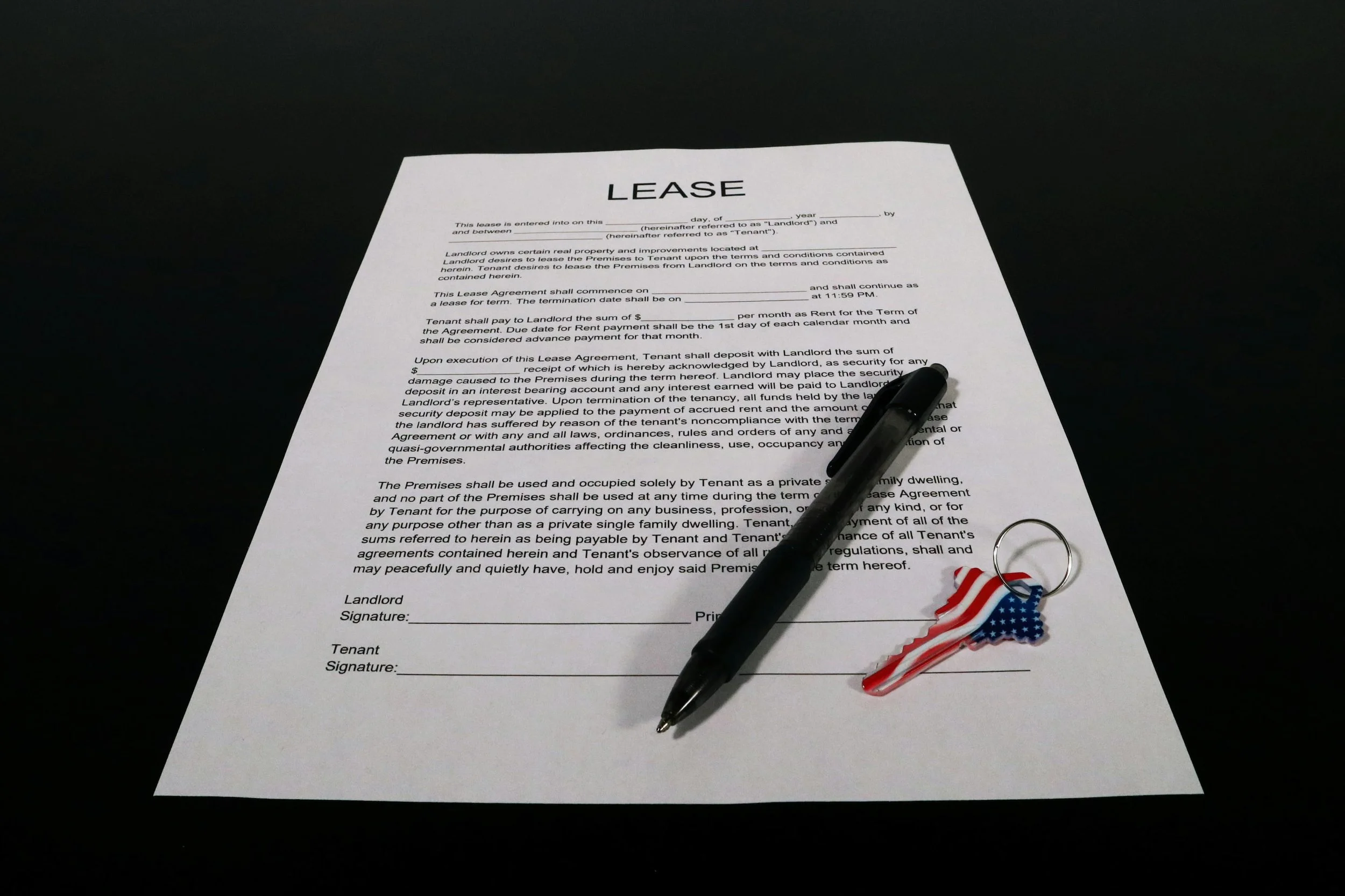Chicago Rent Control Laws: Guide for Tenants and Landlords
While Chicago doesn’t have traditional rent control, the city has strong regulations that protect tenants and guide landlords through the rental process.
This guide breaks down what you need to know about rent control, tenant rights, landlord duties, and what to do when problems arise.
By learning the basics, both tenants and landlords can avoid common mistakes, reduce disputes, and build more respectful, stable rental relationships that benefit everyone involved.
Why Chicago Has No Rent Control
Unlike cities like New York or San Francisco, Chicago is prohibited from adopting rent control laws. This is because Illinois passed the Rent Control Preemption Act in 1997, blocking local governments from capping rent increases. The goal was to keep the rental market open and predictable for property owners, encouraging investment in new housing. While landlords can legally issue a rent increase, they must still provide proper notice — typically 30 to 60 days — depending on the lease terms. While this law limits direct rent caps, it doesn’t leave tenants completely unprotected. Chicago uses other regulations to balance landlord rights with tenant protections, helping keep the market fair without strict rent limits.
What Fills the Gap? The RLTO
Chicago’s rental market continues to feel the pressure of the housing crisis, especially in areas with rising rents and limited affordable options. Instead of rent control, Chicago relies on the Chicago Residential Landlord and Tenant Ordinance (RLTO). Passed in 1986, the RLTO protects tenants’ rights and sets clear rules landlords must follow, covering things like security deposits, required notices, repairs, and habitability standards. It applies to most rental properties, though some smaller owner-occupied buildings are exempt. Understanding the RLTO helps tenants know when they can withhold rent, request repairs, or challenge unfair practices. For landlords, following these rules avoids legal penalties and promotes better, more transparent landlord-tenant relationships. The RLTO is just one piece of a broader Illinois landlord tenant law framework that governs how property owners and renters interact statewide.
Key Tenant Rights in Chicago
Even without rent control, tenants in Chicago have strong legal rights, including:
Right to a habitable home – Landlords must keep units safe, clean, and up to code.
Right to privacy – Landlords must provide at least 48 hours’ notice before entering, except in emergencies.
Protection from retaliation – Landlords can’t punish tenants for reporting code violations or joining tenant groups.
Security deposit rules – Landlords must return deposits within 45 days after the lease ends and provide itemized deductions if any.
Understanding these rights helps tenants feel secure and reduces the risk of disputes.
Landlord Responsibilities in Chicago
Landlords have legal duties that go beyond collecting rent. Under the RLTO, they must:
Provide tenants with a summary of the RLTO at lease signing.
Maintain rental units in a safe, habitable condition.
Return security deposits within 45 days, with an itemized statement for any deductions.
Disclose known lead paint hazards.
Give at least 30 days’ written notice before raising rent or ending a month-to-month lease.
Following these rules isn’t just good practice — it’s required by law. Landlords who fail to comply risk fines, lawsuits, or tenant claims.
Withholding Rent: When and How Tenants Can Do It
Chicago law lets tenants legally withhold rent if landlords fail to fix serious issues affecting health or safety. But it isn’t as simple as just stopping payment. Tenants must follow these steps carefully:
Identify the problem – The issue must violate building, health, or safety standards (e.g., lack of heat, broken plumbing, pest infestations).
Notify the landlord – Send a written notice describing the problem and requesting repairs. Keep copies for your records.
Allow reasonable time – Usually, this means giving the landlord at least 14 days to address the issue.
Take action if repairs aren’t made – Options include:
Depositing rent with the Clerk of the Circuit Court of Cook County.
Using the repair and deduct method (paying for repairs yourself and deducting the cost from the rent).
Documenting every step — letters, photos, and receipts — is key to staying protected legally.
Step-by-Step: Using the Repair and Deduct Method
The “repair and deduct” method helps tenants address urgent repairs without waiting indefinitely. Here’s how it works:
Notify the landlord in writing about the issue.
Wait for a reasonable period (typically around 14 days).
Hire a licensed professional to complete the repairs.
Keep all receipts and documentation, and deduct the cost from your next rent payment.
The amount deducted must be reasonable and usually cannot exceed the monthly rent. Always consult legal guidance before using this method to avoid disputes.
Rent Strikes in Chicago: What Tenants Should Know
A rent strike is when a group of tenants collectively refuses to pay rent to push landlords to make repairs or negotiate fair terms. While legal under certain conditions, it carries risks:
Organize carefully – Tenants should act as a group, not individually.
Document everything – Keep written complaints, photos, and copies of communications.
Seek legal advice – Rent strikes can lead to eviction attempts or legal action.
When done responsibly and legally, rent strikes can be powerful. But tenants should never start one without fully understanding the consequences.
Evictions in Chicago: Rights and Process
Landlords cannot evict tenants without a court order. Chicago strictly prohibits self-help evictions, such as changing locks or cutting off utilities. Understanding the eviction process in Chicago — from legal notices to court filings — is essential for both landlords and tenants navigating disputes.
The eviction process involves:
Notice – Landlords must give proper written notice, which can range from 5 to 30 days depending on the situation (e.g., nonpayment, lease violations).
Filing in court – The landlord must file an eviction case.
Court hearing – Tenants can present evidence and defend themselves.
Enforcement – Only the Cook County Sheriff can legally remove a tenant after a court order.
Tenants should always attend court dates and seek help from legal aid organizations.
Security Deposits: Rules and Deadlines
Security deposits are a common source of disputes. Chicago’s RLTO sets strict requirements:
Return deadline – Landlords must return the deposit within 45 days after the lease ends.
Itemized deductions – Under Illinois landlord tenant law, a security deposit must be returned within 30 days if no damage is found, or with an itemized list of deductions.
Interest – Landlords must pay annual interest on security deposits, based on rates set by the city.
If landlords fail to follow these rules, tenants may sue and could receive double the deposit amount plus legal fees.
Lease Termination: Notice Periods and Rules
Proper notice helps avoid disputes. Chicago law requires:
For landlords – At least 30 days’ written notice to end a month-to-month lease, raise rent, or change lease terms.
For tenants – At least 30 days’ written notice before moving out of a month-to-month rental.
For fixed-term leases, tenants usually must stay until the lease ends unless there’s a legal reason to break it (like serious code violations by the landlord).
Resources for Tenants and Landlords
Several local resources help tenants and landlords understand their rights:
Legal Aid Chicago – Free or low-cost legal support.
Metropolitan Tenants Organization (MTO) – Tenant advocacy, education, and a hotline.
Cook County Clerk of Court – Help with rent deposits and eviction cases.
City of Chicago Department of Housing – Guides and RLTO resources.
Tenants seeking affordable housing options in Chicago can start with programs from the Department of Housing or consult Legal Aid for support. Using these resources can save time, reduce stress, and prevent legal trouble.
Common Questions About Chicago Rental Laws
Does Chicago have rent control?
No. Illinois law prohibits local rent control measures.
Can landlords enter without notice?
No. Landlords must provide at least 48 hours’ notice unless there’s an emergency.
How can tenants legally withhold rent?
By first notifying the landlord in writing, waiting for repairs, and then either depositing rent with the court or using the repair and deduct method.
What if a landlord doesn’t return my deposit?
Tenants can sue, and landlords who violate deposit rules may owe double the deposit amount plus attorney fees.
Can landlords raise rent without notice?
No. Landlords must give tenants at least 30 days’ written notice.
Staying Informed Protects Everyone
Understanding Chicago’s rental laws helps both tenants and landlords. For tenants, it ensures safe, fair living conditions. For landlords, it prevents legal problems and builds trust with renters.
Even without traditional rent control, Chicago’s RLTO and related laws offer strong protections and clear guidelines. Staying informed, keeping written records, and using available resources can help resolve issues before they become serious disputes.
If you’re unsure about your rights or obligations, consult legal aid or local housing organizations. By knowing the rules, everyone can help create a fair and balanced rental market in Chicago.
Beyond Rental Laws…
Whether you’re a landlord managing investment properties or exploring Chicago’s real estate market, understanding tenant protections is crucial. Even with strong knowledge of Chicago’s rental laws, managing a rental can still be stressful, especially when dealing with repairs, tenant disputes, or older buildings. For some landlords, selling for cash offers a faster, hassle-free way out.
By selling directly to a cash buyer, you can skip repairs, avoid listings, and close quickly, freeing up equity and moving on without the ongoing responsibility. If managing your rental no longer fits your plans, exploring a cash sale might be the right next step.





